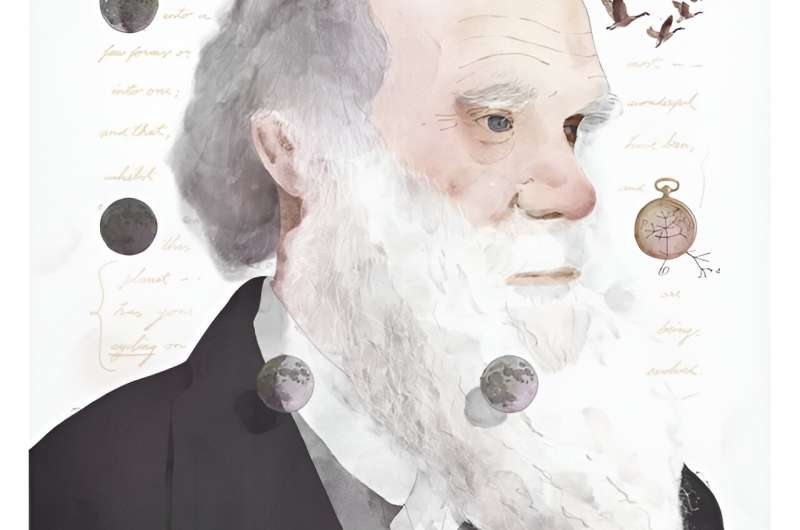This article has been reviewed according to Science X's editorial process and policies. Editors have highlighted the following attributes while ensuring the content's credibility:
fact-checked
peer-reviewed publication
proofread
Exploring Darwin's longstanding interest in biological rhythms

A close reading of Darwin's work suggests a deep interest in cyclical events. Rhythmic phenomena in nature—today the subjects of the field of chronobiology—have been studied since at least the 18th century. In a perspective, Tiago Gomes de Andrade and Andrew D. Beale examined the writings and work of Charles Darwin to explore and share the eminent naturalist's deep fascination with biological rhythms. The work is published in PNAS Nexus.
Darwin's work on the "sleep movements" in plants, published in 1880 with his son Francis is well known. This work examined the daily cycle of opening and closing of leaves. But as far back as 1838, Darwin was taking notes on whether plants that close their leaves in response to touch might also show daily rhythms.
Throughout his career, he took note of seasonal and daily biological rhythms, including diurnal and nocturnal habits in animals, seasonal migrations, cyclical changes associated with reproduction, hibernation patterns, and tidal rhythms, among other temporal patterns. Darwin recognized the heritability and adaptive nature of many of these rhythms, from the timing of mating seasons to correspond with peak vigor to the evening timing of plant perfume release to communicate with nocturnal pollinators.
According to the authors, Darwin's observations and experiments show a profound engagement in what is now termed chronobiology.
More information: Tiago G de Andrade et al, Darwin and the biological rhythms, PNAS Nexus (2024). DOI: 10.1093/pnasnexus/pgae318
Journal information: PNAS Nexus
Provided by PNAS Nexus





















